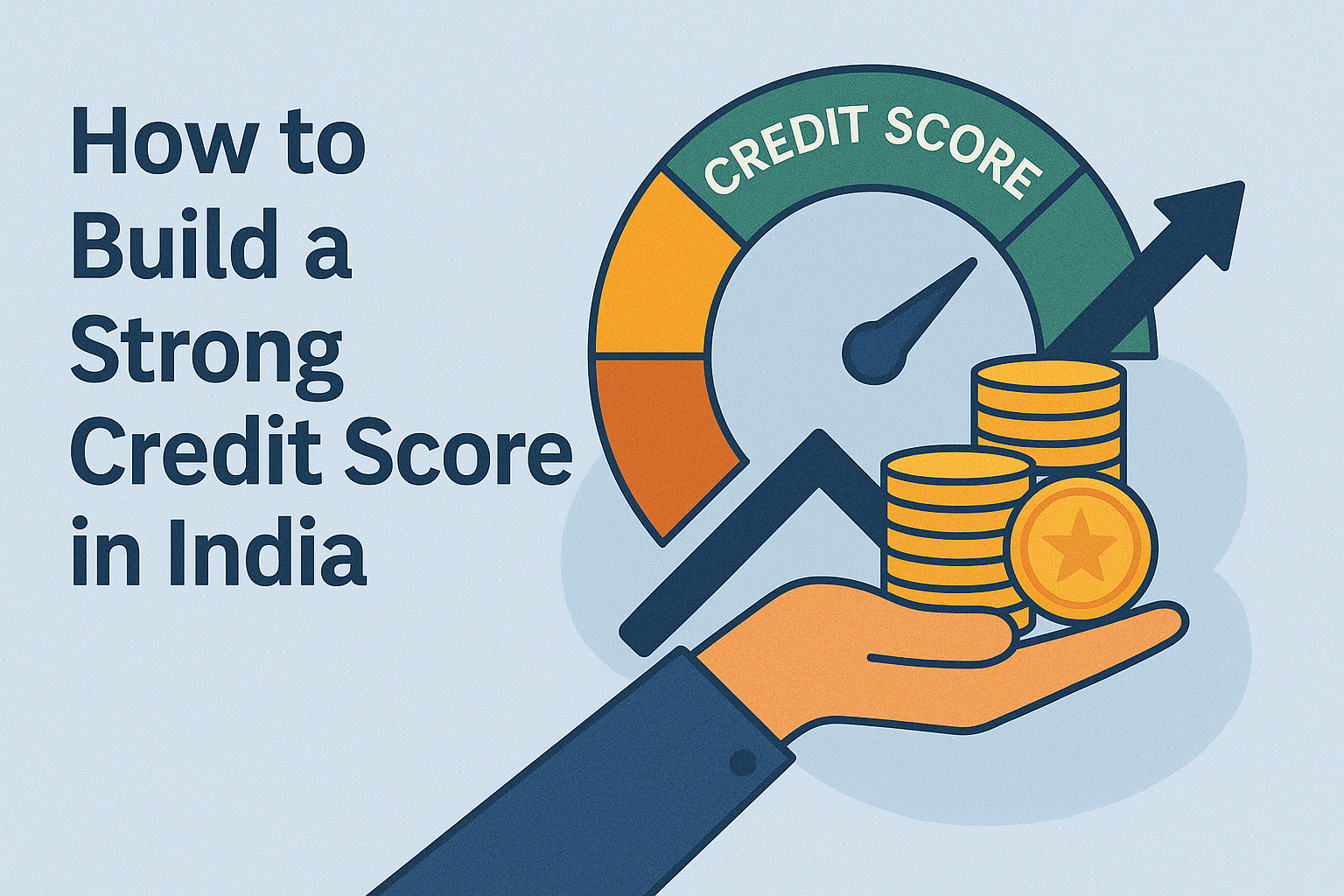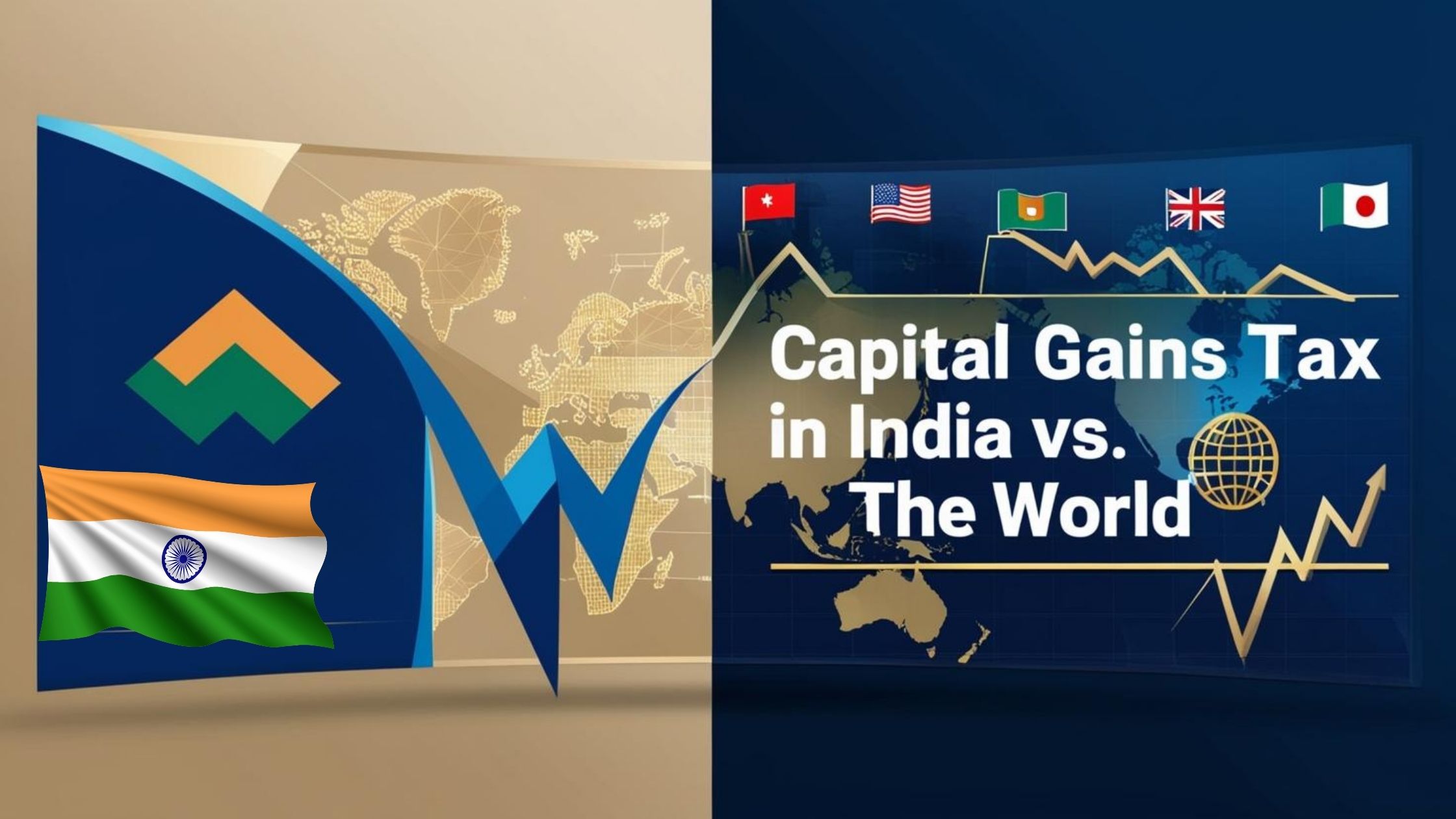Introduction
Your credit score is one of the most important numbers that determine your financial credibility in India. Whether you’re applying for a home loan, personal loan, or even a credit card, a good credit score can open the door to lower interest rates, higher credit limits, and faster approvals.
In this guide, we’ll explain how to build a strong credit score in India, the factors that affect it, and actionable strategies you can adopt to improve and maintain a healthy financial profile in 2025 and beyond.
What is a Credit Score?
A credit score is a 3-digit number ranging from 300 to 900 that reflects your creditworthiness. In India, the most widely accepted score is the CIBIL score, issued by TransUnion CIBIL. Other credit bureaus like Equifax, Experian, and CRIF High Mark also offer similar scoring systems.
Credit Score Ranges:
- 750 – 900: Excellent
- 700 – 749: Good
- 650 – 699: Fair
- 600 – 649: Poor
- Below 600: Very Poor
Your goal should be to maintain a credit score above 750 to ensure you’re eligible for the best credit offers.
Why Is a Strong Credit Score Important?
Building a strong credit score in India offers a range of benefits:
- Faster loan approvals
- Lower interest rates
- Higher credit card limits
- Approval for rental agreements
- Better negotiation power with lenders
- Access to premium credit cards and services
This is why knowing how to build a strong credit score in India is crucial in 2025’s credit-centric financial world.
How to Build a Strong Credit Score in India – 10 Proven Tips
1. Start Early with a Credit Card
Begin building your credit history by applying for a starter credit card such as a secured credit card or a student card.
Tip: Use it for small monthly expenses and pay in full every month.
2. Pay All EMIs and Credit Card Bills on Time
Timely payments have the most significant impact on your credit score. Set up auto-debit instructions to avoid missing due dates.
3. Avoid Paying Only the Minimum Due
Paying only the minimum amount may not hurt your score initially, but it increases debt and interest. Try to pay the full outstanding balance.
4. Maintain a Healthy Credit Utilization Ratio
Keep your credit utilization below 30% of your total credit limit.
For example, if your card limit is ₹1,00,000, don’t spend more than ₹30,000 per billing cycle.
5. Diversify Your Credit Mix
Have a good balance of secured (home, auto loans) and unsecured loans (personal loan, credit cards). Lenders prefer a diversified credit portfolio.
6. Avoid Frequent Loan or Credit Card Applications
Each application leads to a hard inquiry, which slightly reduces your score. Apply only when necessary.
7. Check Your Credit Report Regularly
Download your free CIBIL report from the official website every year. Report any errors and request corrections immediately.
8. Keep Old Credit Accounts Open
Long-standing accounts show a history of stable repayment. Don’t close your oldest credit card if it has no annual fee.
9. Consolidate and Manage Your Debts
If you’re juggling multiple loans or credit cards, consider a debt consolidation plan to manage payments more efficiently.
10. Become an Authorized User on a Trusted Person’s Card
This allows you to leverage someone else’s good credit behavior, helping you build your own score without additional liability.
Common Mistakes That Hurt Your Credit Score
- Missing payments
- Overusing credit cards
- Applying for multiple loans in a short period
- Defaulting on loans or EMIs
- Ignoring errors on credit reports
Avoiding these mistakes is as essential as implementing positive habits when learning how to build a strong credit score in India.
How Long Does It Take to Build a Good Credit Score?
It typically takes 6 to 12 months of consistent credit activity to build a decent score if you’re starting from scratch. Improving an already damaged score can take longer depending on the severity of past issues.
Myths About Credit Scores in India – Busted
- Myth: Checking your credit score frequently reduces it.
Fact: Soft checks or viewing your own score does not impact it. - Myth: Salary affects your credit score.
Fact: Income is not a factor; repayment behavior is. - Myth: Closing old cards improves your score.
Fact: It may reduce your average credit age and hurt your score.
Best Apps to Monitor and Improve Credit Score in India (2025)
- CIBIL Official App
- OneScore
- CreditMantri
- Paytm (Credit Score Section)
- BankBazaar
- Paisabazaar Credit Tracker
Conclusion
A good credit score is a critical component of financial success. Whether you’re planning to buy a house, start a business, or apply for a premium credit card, a solid credit score will help you get there faster and cheaper.
Follow the tips shared in this guide on how to build a strong credit score in India, and with consistent effort, you’ll see your score improve and your financial opportunities grow in 2025 and beyond.



